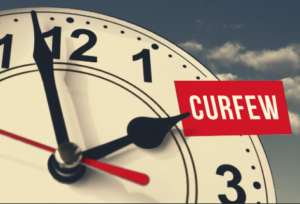Crackdown on ‘daggering’ songs, soca
The Broadcasting Commission yesterday included soca music in its ban on the airing of music with sexually explicit lyrics as debate on the regulatory agency’s prohibition of lewd dancehall songs grew in intensity with accusations that the commission’s action was one-sided and smacked of hypocrisy.
At the same time, Broadcasting Commission Chairman Dr Hopeton Dunn told journalists at a news conference that the agency had made recommendations to the Government to make amendments to the Television and Sound Broadcasting Regulation in a bid to clean up the music being played on the airwaves.
“The commission has made a number of recommendations to Government to amend the Television and Sound Broadcasting Regulation. These we consider to be urgent and we will be making the necessary representation for these amendments and reforms to be taken to Parliament at an early date for consideration,” Dr Dunn said at the press conference at the Knutsford Court Hotel in Kingston.
“These include requirements around playlists and music sheets; vetting and approval of songs by station managers prior to transmission by DJs; non-transmission of songs that condone or encourage hostility or violence; the encouragement or glamourising of use of illegal drugs or misuse of alcohol,”
he added.
Additionally, Dr Dunn said the commission will be recommending the repeal of the existing Broadcasting and Radio Redufusion Act of 1946 and will propose a model act that will deal with regulating the airwaves.
“We have sought an early amendment of the existing act to provide the commission with the authority to impose financial sanctions with a parallel provision for an appeals mechanism,” he added.
Last Friday, the commission announced the banning of the transmission of any song or music video which promotes the act of “daggering” or the use of bleeping or beeping techniques to mask explicit lyrics.
The commission defines daggering as a “colloquial term used in dancehall culture as a reference to hardcore sex or what is popularly referred to as ‘dry sex’ or the activities of persons engaged in the public simulation of various sexual acts and positions”.
Dunn said Friday’s ban was in response to the deluge of “daggering songs” on the airwaves, which is in contravention of section 30 (d) of the Television and Sound Broadcasting Regulation. He said the directive was part of a wider set of actions being embarked upon by the commission to transform the media.
Yesterday, callers to radio talk shows voiced support for and opposition to the commission’s decision, with critics labelling it biased and accusing the commission of being hypocritical.
The critics questioned the ban, saying it was an attack on dancehall music and argued that it should have been extended to soca music played at carnival, as many of those songs are laced with sexually suggestive lyrics.
But at his early afternoon news conference, Dr Dunn said that the commission will be keeping an eye on the carnival festivities.
“We will be looking very closely at any form of output, including carnival and soca music, in relation to violations of the regulations,” he said.
Yesterday, the Media Association of Jamaica (MAJ) issued a cautious reaction to the commission’s action, saying that while it eliminates the possibility of one broadcaster having an advantage over another in terms of who can play the most edgy version of a song, the association was wary of the imposition of a ban.
“. there is a thin line between a ban and the stifling of creative expression, and so the creators and producers of the music are now directly challenged to get that balance right,” the MAJ said.












